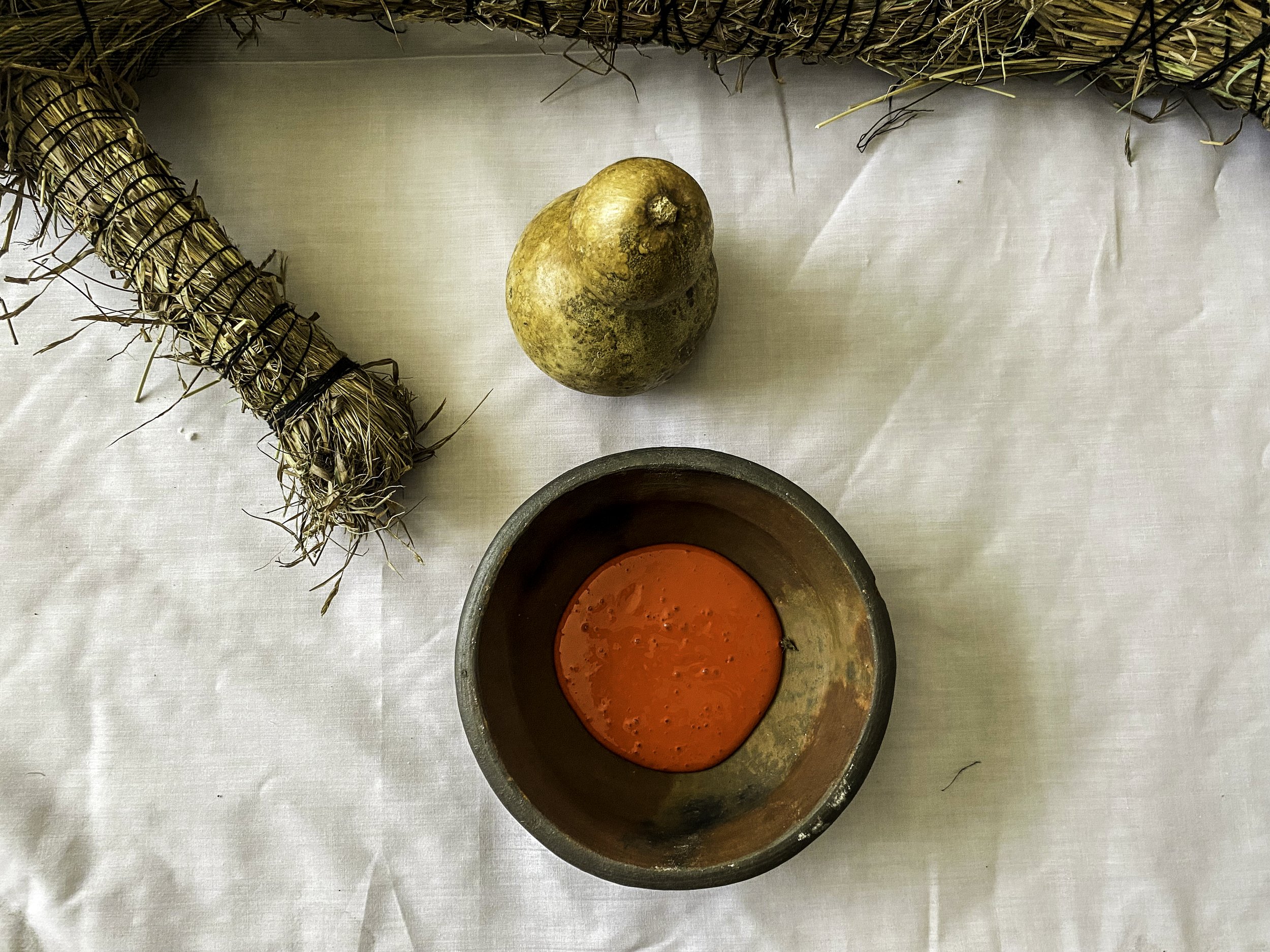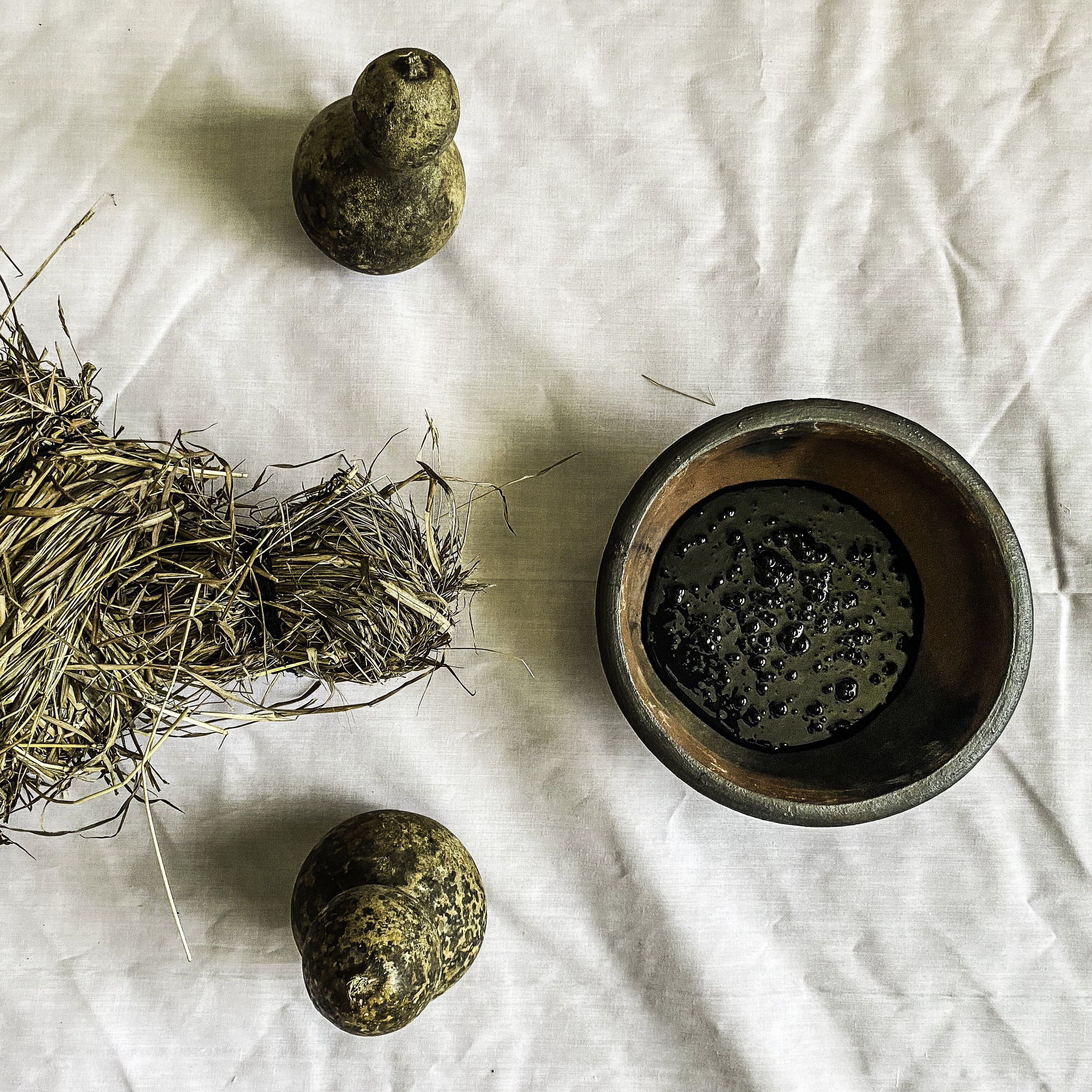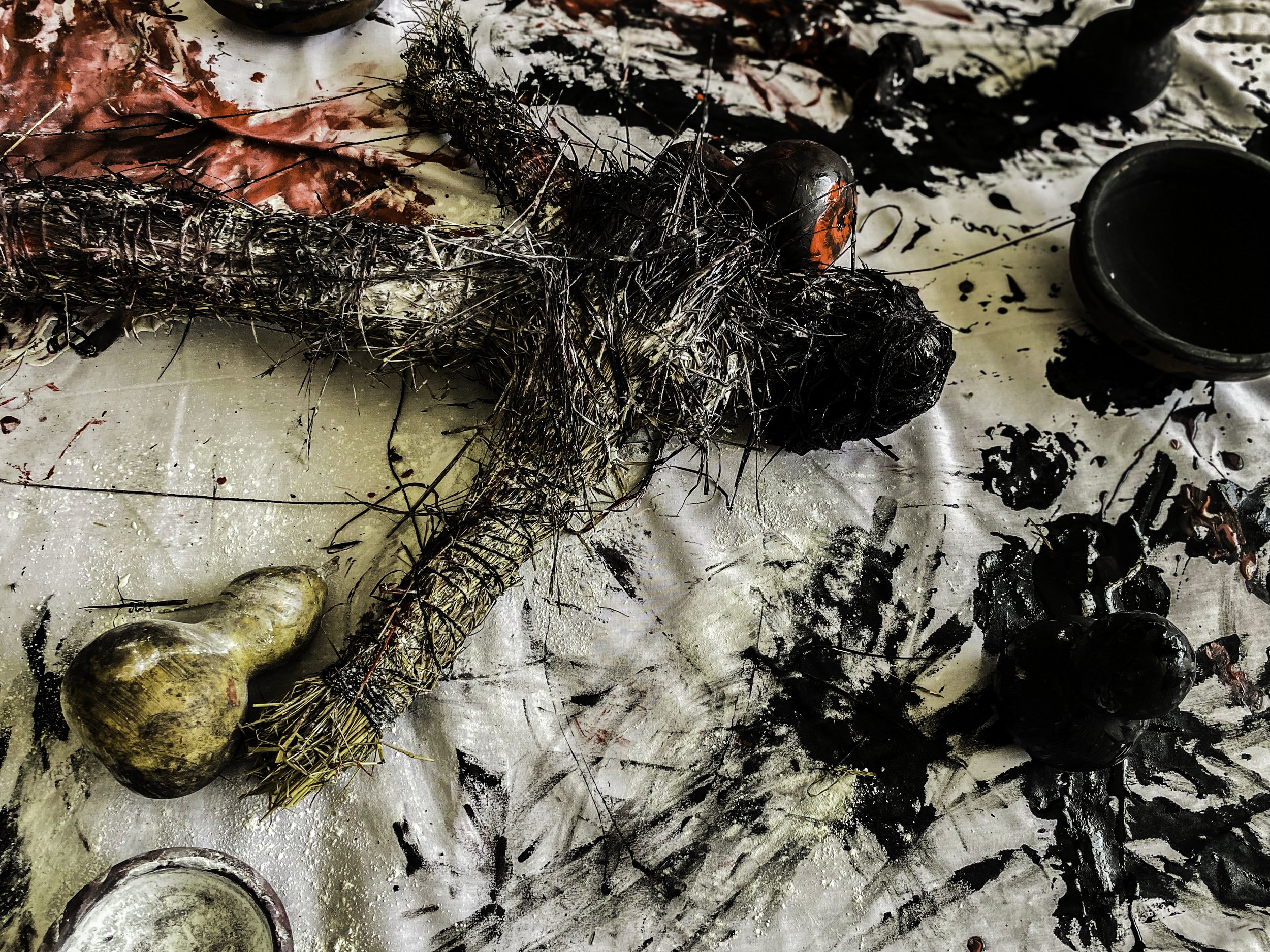“On Forbidden Knowledge” Series Recap
“Really appreciating learning our culture/identit[i]es from our own voices. Thank you for putting together this incredible event!”
“Restitution must and should be holistic.”
“Let’s spread the discourse and not let [...] it be only with a group of people.”
Between September and October 2023 we realized our first project “On Forbidden Knowledge” aiming to uncover hidden or unknown narratives by exploring forms of Indigenous knowledge and practices that were forbidden under colonial rule.
The project consisted of a virtual artist residency and three online conversations. Following a call for artists we selected Mihayo Kallaye, a multimedia installation artist from Tanzania, out of 76 applications.
Photo courtesy of Mihayo Kallaye.
Mihayo listened and engaged in two conversations with scholars and Indigenous experts that centered around historic objects from three different African countries that are currently being held in European museums. He did his own research and worked on an artistic response that he presented in an artist talk.
Conversation One:
Makishi Masks
Ceremonial Regalia and the Makishi Masked Dancers
The historical object of focus was the Makishi Mask. The Mask is part of a ceremonial regalia that is worn by the Makishi masked dancers that are ancestral guardians of the Mukhanda right-of-passage ceremony for boys who are circumcised when they come of age. This is largely practiced by the Luvale, Chokwe, Mbunda and Luchazi ethnic groups that can be found in the south of the Congo, northwest and west of Zambia and north east and south east of Angola in Africa.
The Makishi masks were taken from Zambia in 1969 by Swedish anthropologist John-Erik Elmberg who was funded by the Swedish organisation SIDA. These masks are just two from hundreds of objects from Zambia collected over a century ago that have ended up in the National Museums of World Culture in Sweden. Mwata Chibweka Bitonde, a Luvale Community Elder from Zambia, shared insights into the Makishi mask's significance within the context of Luvale, Luchazi, Chokwe, and Mbunda communities in Zambia. It's a vital means of intergenerational communication. Mwata also explored the suppression of Indigenous practices like Mukhanda during colonial times and the challenges of reviving them in a modern world dominated by foreign cultures and Christianity. Victoria Phiri Chitungu, a curator, cultural historian and provenance researcher from Zambia emphasized the challenges of interpreting Indigenous cultural practices in museums and discussed the historical context of colonial bans on these practices, which still affect perceptions today.
Speakers:
Victoria Phiri Chitungu: Curator, cultural historian and provenance researcher (Zambia)
Mwata (Elder) Chibweka Bitonde: Luvale Community Elder (Zambia)
A recording of the event can be watched here.
Conversation Two:
Kenyan and Egyptian Dolls/Fertility Figurines
Restitution of Indigenous Knowledge
Part two focused on the challenges and opportunities surrounding the restitution of Indigenous knowledge within museum spaces and internal structures. We introduced the museum effect, how it constructs ways of seeing cultures and communities and its impact on the daily lives of Indigenous communities today by creating stereotypes and stigmas. An important departure point was the positioning of museums as an authoritative space for knowledge production; a construction which in turn framed a colonial gaze towards African collections. Ancestral belongings became dehumanized objects or things with accession numbers constructed with a Western or European way of seeing the world. Indigenous knowledge was labeled as subjective, savage, sensational and backwards.
The conversation was centered around a Kenyan Ikidet/Turkana figurine and a Remessium Tomb Egyptian fertility figurine currently being held in the National Museums of Kenya and the Manchester Museum (United Kingdom) respectively. These figurines were used as examples to underscore the reductive Western perception of such rich African material culture.
Speakers:
Lydia Nafula: Researcher at the Cultural Heritage Department of the National Museums of Kenya and alumni of TheMuseumsLab 2022
Campbell Price: Curator of Egypt and Sudan at the Manchester Museum, University of Manchester - one of the UK's most significant Egyptology collections
A recording of the event can be watched here.
Conversation Three:
Artist Talk
The final conversation was between Mihayo Kallaye, DRR Virtual Artist in Residency and Mokia Laisin, writer and curator at SAVVY Contemporary Berlin (Germany). Mihayo Kallaye explored materials that represent particular forms of Indigenous knowledge or practices that were forbidden under colonial rule.
A recording of the event can be watched here.
Mihayo Kallaye’s video performance can be watched in full here.
Below is a photo installation featuring five images captured during a performance in which Mihayo Kallaye created a non-existing ritual, an effort to remember and reconnect with the ways of our ancestors.




Photographs courtesy of Mihayo Kallaye.
We are grateful to TheMuseumsLab and SAVVY Contemporary for all the support throughout the series. We also thank the Goethe Institut Kenya for funding our project.

